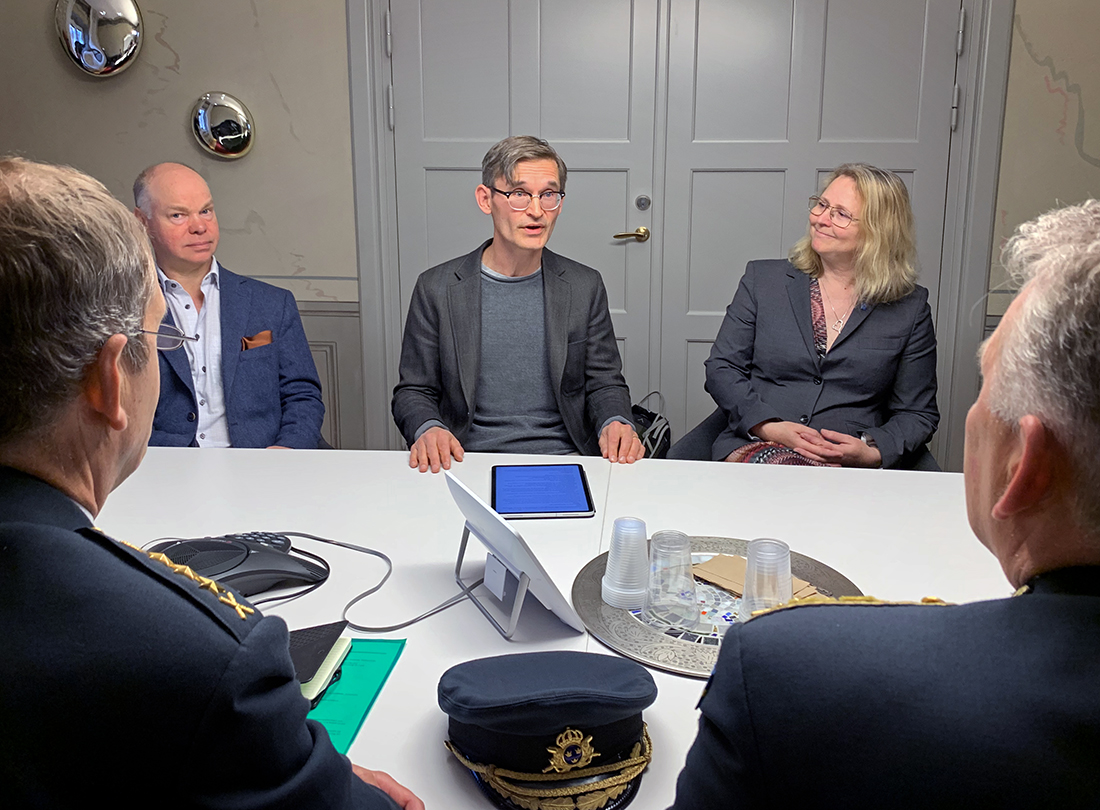Future wars will be fought on the internet
KTH and the Swedish Armed Forces have announced a new form of collaboration on IT security through the establishment of a Centre for Cyber Defence and Information Security. Pontus Johnson, the project manager for the planning of the centre, explains that the collaboration reflects the type of conflicts that will arise in the future and how they will be conducted.

“It is believed that in the future, wars will be increasingly conducted in cyberspace. More and more things are being controlled by computers, everything from electricity supplies to fighter jets, but the inherent vulnerability of computers means there is a risk that all these things can be hacked. The three traditional arenas for battle are ground (army), sea (navy) and air (air force). Now, more and more people are talking about cyberspace as a fourth battleground,” says Pontus Johnson who in addition to working on the new centre is a professor of networks and systems engineering at KTH.
The reason the centre is being created is that the Swedish Armed Forces need to strengthen and broaden their research and education in the fields of cyber defence and information security. The aim is to increase knowledge and strengthen their ability to carry out operations in cyberspace, and to ensure they have defensible and protected information systems.
“The Armed Forces have chosen to collaborate with KTH because conducting operations on the cyber arena requires extremely advanced technical know-how. A traditional conflict requires many soldiers and advanced equipment but in cyberspace, intellectual power is crucial. Also, the rapid pace of digitalisation and growing awareness of the vulnerabilities that digitalisation implies means this is a topic that has become much more urgent and important," says Pontus Johnson.
This autumn, Sweden’s first “cyber soldiers” will commence their military service. In a pilot project, around 30 conscripts will be trained to counter cyber threats from foreign powers.
“The plan is that KTH will participate in the planning of the study programme, the educating of the Swedish Armed Forces’ own teachers, and, to some extent, the training of the cyber soldiers.”
Annika Stensson Trigell is vice-president of research at KTH. She welcomes the opportunity to develop this highly important field through even more relevant research.
“Collaboration at the new centre will enable us to concentrate and strengthen our resources in this field. It will also allow us to establish stronger links between civilian and defence-oriented research in cybersecurity, which will benefit both KTH and Sweden in the long term,” says Annika Stensson Trigell.
The geographical location of the research centre will be at KTH's School of Electrical Engineering and Computer Science (EECS). The centre will be funded by the Swedish Armed Forces and will be inaugurated on 1 January 2020.
Initially, the centre will be run by the Swedish Armed Forces and KTH. At a later stage, other parties may be given the opportunity to contribute to the centre's activities.
Author: Peter Ardell / Translation: English by French
For more information, contact Pontus Johnson at 08-790 68 25 / pontusj@kth.se or David Olgart (development manager at the Swedish Armed Forces’ command staff) at david.olgart@mil.se.

